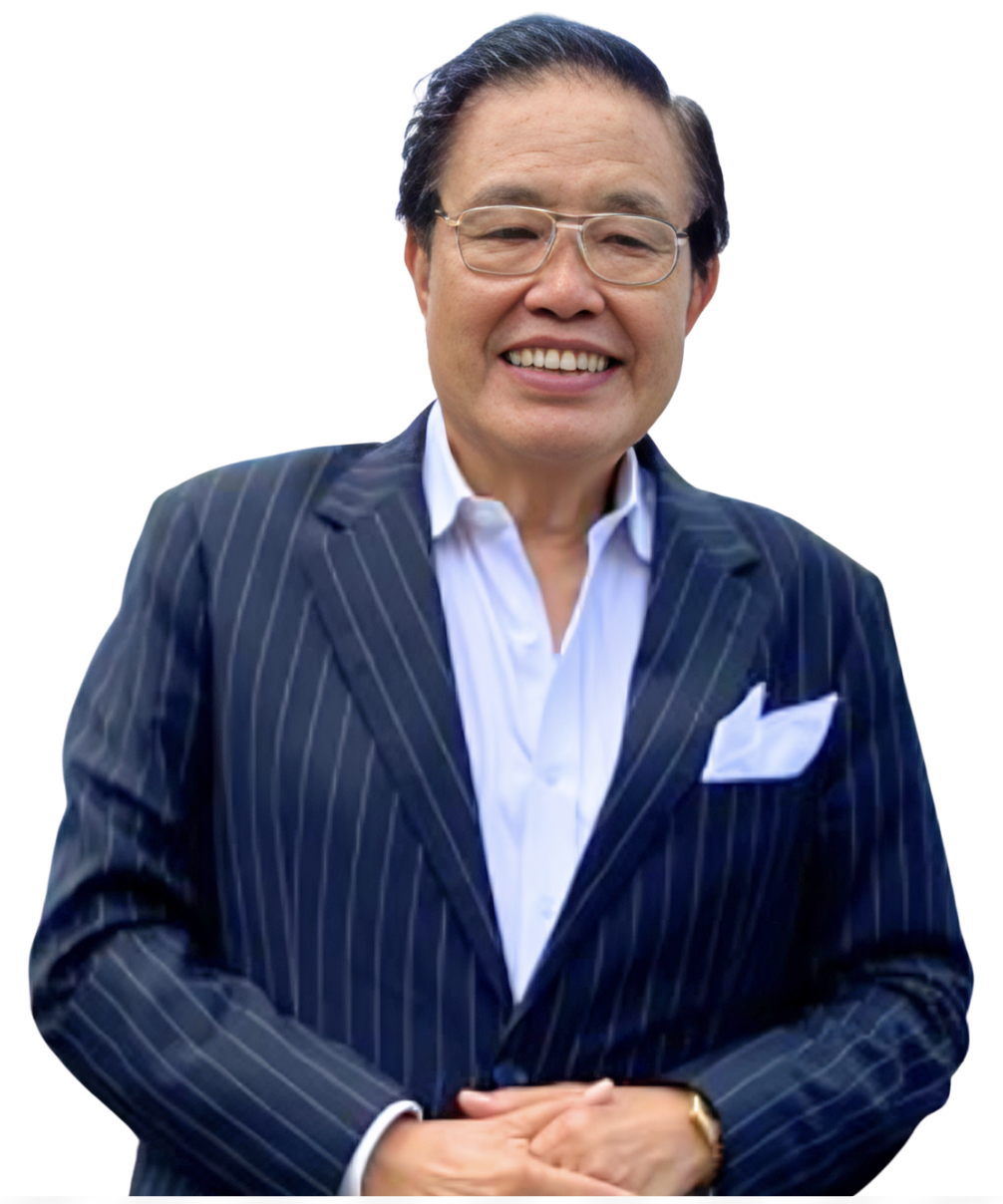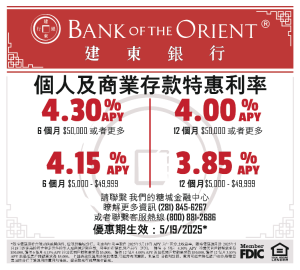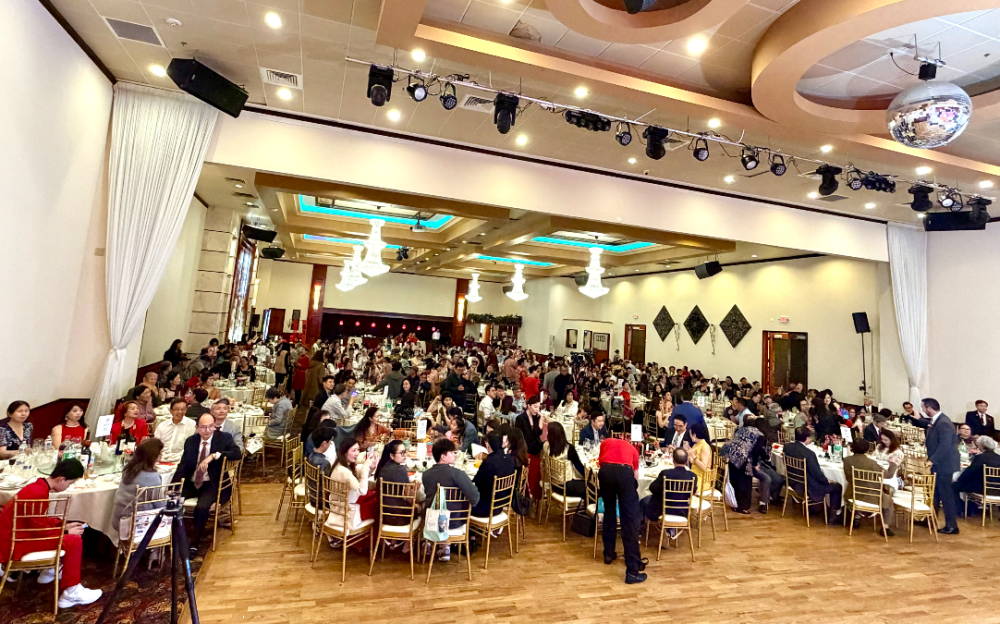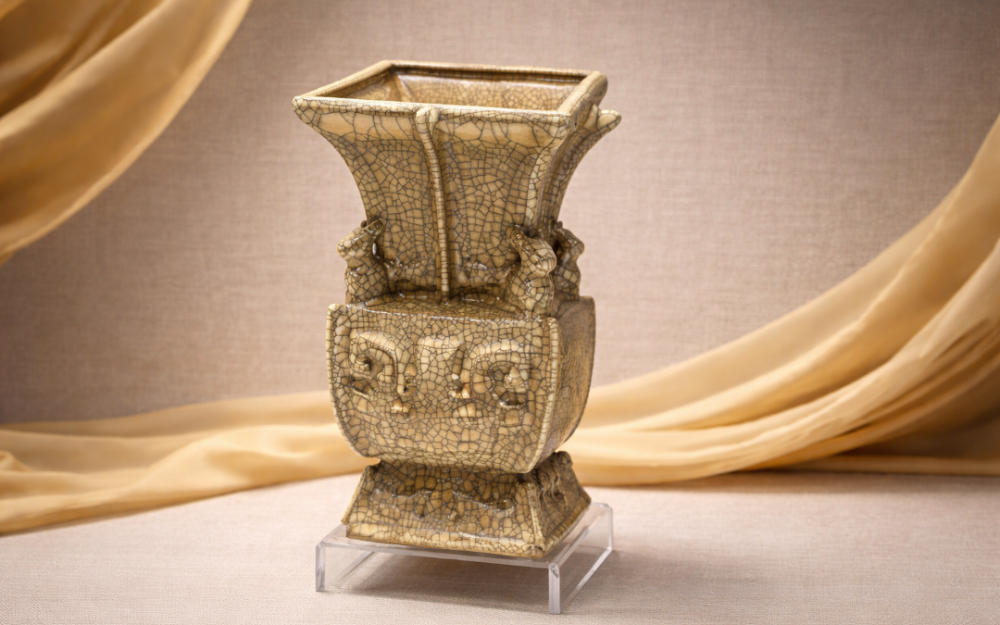五个国家的国际著名诗人为Anna惠子《血液里的孤独》诗集作序
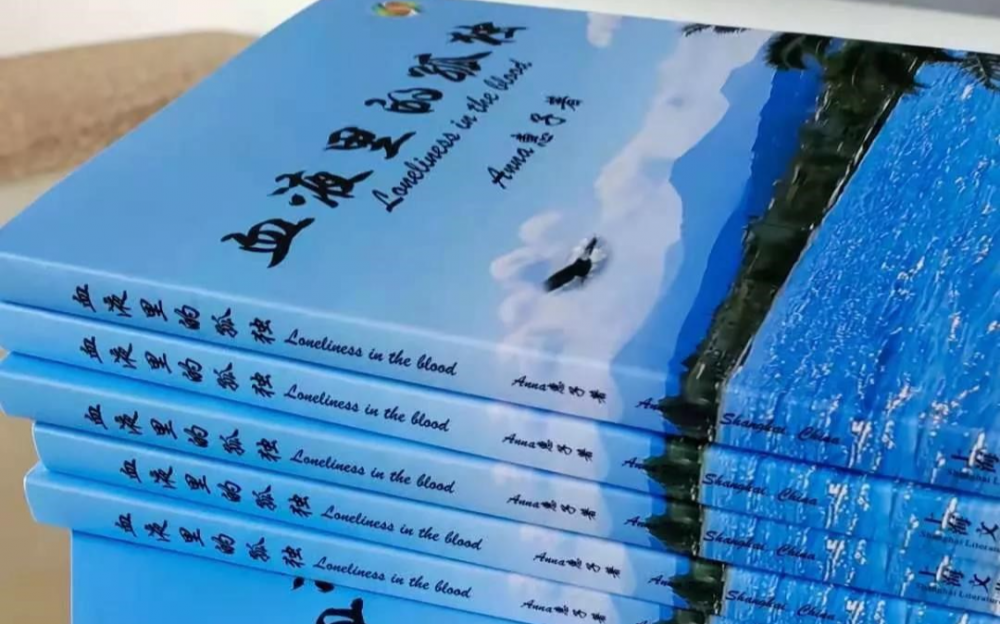
《血液裏的孤獨》詩集,曆經四年創作完成。感謝“五個國家的國際著名詩人作序”特別感謝“戴約瑟老師爲詩集編輯做了繁重的大量工作”。
本詩集主要以國際視野結合曆史脈絡爲主線,但人性與哲思也是任何時期的文化都需要承載的,我也寫當下現實題材,自然有生活,有愛情,有打擊與不甘。作爲一個詩人始終走在探索的前沿,,哪怕一直失敗,我也要騎著巨浪向前。“後記”中就寫到我的創作過程,每個人都用不同的方式投入到生活中,而我的文學之路與大多數人不同。如果你想了解全部內容,看過才知道。
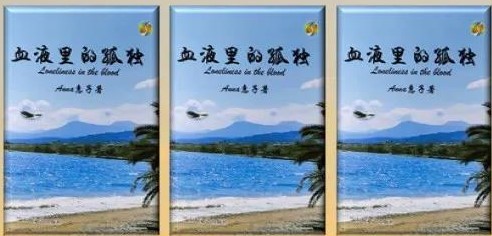
《血液裏的孤獨》10本以上500元,單本/60元1本,不含寄費。《英語詩集》有20多種語言,是學習語言不可多得的教材式詩集,每本/單價100元。《深睡的語言》每本50元。叁本合買200元一套。
如果您有興趣,請直接與我聯系, 聯系電話:13817061426,微信:497944161
謝謝朋友們的支持!
Anna惠子
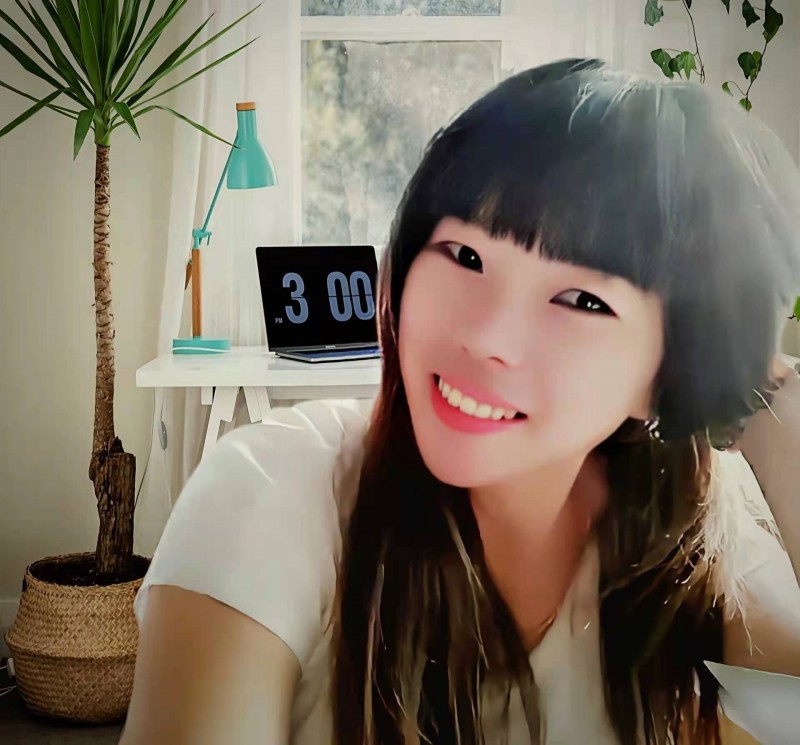
詩人簡曆
安娜惠子(Anna Keiko),詩人、作家,居住上海。ACC上海惠風文學社創始人兼主編,世界華人文學總編,西班牙文化基金會ITHACA理事中國代表,意大利藝術與詩歌的合作夥伴,加拿大古巴文學聯盟國際成員,國際作家雜志特約專欄詩人,中國青年文學家理事。
她的詩已經被翻譯成30多種語言,並在40多個國家200多家詩刊雜志報紙自媒體上發表逾二千首。應邀參加多個國際詩歌節和詩歌交流會議。
2021年5月27日,她在意大利COVID-19國際詩歌比賽中榮獲 “最佳外國作家獎金獎”,是64個國家中亞洲唯一獲獎詩人。
2021年7月15日,獲得 “黎巴嫩第十九屆納吉. 阿曼文學獎”。
2020年10月8日她從72個國家詩人中,榮獲歐洲第8屆聖雷莫國際詩歌賽“最佳外國詩人金獎”。
2020年9月12日榮獲意大利第八屆“圭多•戈紮諾文學獎”。
2019年羅馬尼亞授予“米哈伊•愛明內斯庫文學院獎”和榮譽證書,羅馬尼亞阿爾熱什第九屆國際藝術節暨詩歌會議被授予“巴沙伯•尼戈國王獎”。
2019年智利聖地亞哥國際詩歌組委會授予“詩歌傑出貢獻獎“和證書。
她還獲得了希臘查爾基達第二屆國際詩歌會議榮譽證書。
她獲“中國當代文學藝術獎”和“中國詩歌年度名人榜”以及其它多個獎項。
出版詩集四本,合著幾十部。2021年出新詩集《血液裏的孤獨》來自五個國家的國際詩人和著名作家作序。《深睡的語言》序詩在上海人民廣播電台播出,中文版均由“上海文藝出版社出版”,詩集受到國內外讀者的好評。另著有散文、雜文、歌詞、戲劇等。
序一
詩歌是安娜惠子的宗教 --讀惠子詩集《血液裏的孤獨》有感
幾年前,在浦東惠南的一次文學聚會時認識了惠子,當時她給了我她的第一本新詩集《深睡的語言》,我讀後感覺她的詩歌語言清新雅致、樸實簡潔、情感豐富多彩、思想敏銳,雖然有些詩行尚嫌稚嫩、單薄了點,但她寫作的心態與表達的方式已初具個性,給我們顯示了她詩歌的藝術才華!
2016年8月,上海市作家協會等單位主辦了“首屆上海國際詩歌節”,當時邀請了許多國內外知名詩人參加,盛況空前,我也加入了這次詩歌盛會。之後,上海每年都舉辦“國際詩歌節”,惠子也參加了這個詩歌活動。上海也由此展示出了中國文化的活力與詩歌的繁盛。
近兩年,惠子的詩名愈來愈大,她英文版詩集《深睡的語言其他詩》出版後,部分的詩作已被翻譯成二十多種語言,並在世界20多個國家和地區發表了作品,得到了國際詩人們的認可!近來,她應邀參加了多國的“國際詩歌節”, 並得了幾個詩歌大獎,贏得了詩壇很高的聲望!成了名副其實的“國際桂冠詩人”的稱號!如今,中國當代詩人在國際上得詩歌大獎的無非是在中國作協體制內有影響的實力派詩人或官員詩人,像惠子既不是體制內的作家詩人,也不是國家級或省級作協會員,她只是以一個中國民間詩人跻身“國際詩壇”行列,實屬鳳毛麟角!可想而知,她的詩歌是多麽受人喜歡啊! 當然,“國際詩人”的名頭所帶來的不單單是榮譽,還引來了許多非議。由此她迷惘、困惑、痛苦,幸好有兩個著名詩人跟她說:“走自己的路,讓別人說去吧!”在前輩詩人激勵和鼓舞與惠子的倔強性格雙重作用下,惠子終于走出了陰影,涅槃而重生了!
近期,惠子要我爲她第叁本詩集《血液裏的孤獨》作序,我欣然答應。惠子是我們浦東作家協會的會員,她有現在的成就也是我們浦東作協的榮耀;她早期曾生活艱難、工作無著、困頓疲憊,這種人生經曆會使她的作品更接地氣;還有她對詩歌的迷戀像對宗教的崇拜,我想,她在詩歌這塊園地裏一定會耕耘出更爲出彩的詩作,所以我義不容辭地爲她說上幾句!
惠子這幾年遊曆了世界上許多國家,她的這本詩集《血液裏的孤獨》第一輯“希望的曙光”中的“希臘組詩”寫得很有特色。古希臘是西方文明的源頭之一,希臘神話更是世界文化藝術寶庫裏的一朵奇葩。惠子以深邃的曆史目光去看待兩千多年前的遺物:“像指尖觸動琴鍵/觸碰飛翔的靈魂/幾根柱子,令群山失色”,“神和人終將握手/我的族譜寫著伏羲,神農氏”,“神谕,讓愛引向靈魂/時間帶不走仁慈/你爲廢墟生長綠葉/未來世界血液融合”(《德爾斐——阿波羅神廟》)在這裏,她的詩筆不但超越了時間與空間,還將中西方的文化思想融彙貫通!這首詩從她立意的高度,呈現的寬度,穿透的厚度上來說,都可以認定爲上乘之作!
惠子第二輯“無論你跌倒多少次”中《住在星空下》這首詩是首寫實的詩,寫實最能打動讀者的心,尤其她用精練的詩句抒發自己苦難的經曆,更能讓人産生同感。“夜如一頭巨獸,無人征服/耗子占據被窩/我移居草地/露水從臉上流到嘴裏,複雜味道……面對勞動報酬負數/風吹冷了胸膛/疼痛無處申冤”。這是她在打工時期的真實寫照,生活的殘忍,工作的不堪,倒讓她的普世觀日漸成熟。苦難是詩人最大的財富,貧困是詩人創作的源泉,杜甫在貧窮潦倒時寫出了千古傳誦的詩篇《茅屋爲秋風所破》,普希金在流放時創作了《假如生活欺騙了你》。普希金的這首詩曾經勉勵、鞭策過多少人,惠子也因爲這首詩而堅定了自己詩意的人生道路!
惠子第叁輯“告訴我你的痛”中《致--母親》是一首寫親情的詩,“盛滿露水的草叢墳地蕩漾/引我眼睛瀑布,深省/隔著一層土,觸目不可見//鞠躬送出隔著時空香紙/祭品化著青煙/隱蔽的形體能否吮吸甜美滋味……”對母親的深情,對母親的懷念,她是用字字帶淚的詩句來傾訴,這隔世的叨念讓讀者也走入了淒苦的意境!
她第四輯中《血液裏的孤獨》:“夜抓不住靈魂,壓抑的器官/像玫瑰敲打瓶子,放我出來吧”她對著自我在呼喚、哭訴、吼叫,想把靈魂深處的孤獨叫喚出來“夢遊正在驅動人類向前,向前吧/冬天過後不再有死亡,不再有/一切在春天枝頭重複誕生/它們制造痛苦,流泉淙淙/生命重負逼它說出/一切不會死,永遠活著,白色/從空中飄起送葬音符/呵,惡風穿過空林/強吻夢中的我 /你的紅唇將爲這卑賤過去/爭破自我設定的網”這首詩似呓語、似哭叫、似獨語、似呐喊、似宣戰,在這裏,她把所有受到的不公、暗諷、欺淩、羞辱都作了一一回擊,然後毅立風中、毅立塵世,坦然面對過往,坦然面對未來!
惠子的詩歌創作已到了爐火純青,她已站在未來十年、百年的高峰上來看待萬物、洞察世界,從而練就一雙詩眼。尤其是這些內心獨白、傾訴苦痛、抒發心緒、放飛靈魂的詩!她在歡愉、快樂、痛苦、寂寞、惆怅時都會用轉折起伏的筆調,把內心所有的感情與感受書寫出來,撥動讀者心弦,贏得共鳴!
寫到這裏,我一直在想,惠子爲什麽要寫詩,爲什麽要迷戀詩歌?人們說,詩歌是一劑毒藥,一劑無可救藥的毒藥,一旦沾染,很難自拔!可惠子爲什麽還願意沉淪其間。其實惠子知道,詩歌不是商品,是精神聖物,寫詩的人物質生活也並不富褣,但能養成一種深度思考與獨立人格,故而被世人稱之爲“精神富翁”!惠子就是想用凝練的詩詞詩語與超拔的思想去抵達自己營造的純淨詩境!
原本詩歌不能改變人生的長度,但能改變人生的寬度與厚度;詩歌不能擺脫生活的窘境,但能擺脫精神的苦痛。詩歌會潛移默化改變一個人、一個地區的命運,一個民族、一個國家需要詩歌象需要宗教一樣,詩歌就是惠子的宗教。希望惠子在未來的日子裏創造出更含有張力、富有彈性、韻味十足的詩篇,從而擁有一個不同常人的精神世界!
王亞崗
2020年5月中旬于樹德堂
作者系中國作家協會會員、上海市浦東新區作家協會主席、《上海詩人》雜志編輯。
序二
一座連接東西方詩歌的橋梁
2018年我在上海國際詩歌節朗誦完自己的詩歌後,幸會與會安娜惠子女士。返回西班牙家中,我即給她及其他中國參會同仁發去“每周一詩”相關文獻。“每周一詩”由本人從世界各地優秀詩歌中精選而成,以23種語言譯介出版。安娜·惠子對該項目充滿熱情,自2018年11月以來,她一直在自己主事的上海惠風文學社之網站及其他一些中國文學網站予以力推,成功構築了一座聯通中國與世界的詩歌金橋,她也被推選爲總部設在西班牙的國際文化基金會伊薩卡(Ithaca)中方代表。
同時,我也有幸閱讀了她的諸多優秀詩歌作品。她的詩在希臘、羅馬尼亞和智利的國際詩歌節上倍受贊賞,發表在多家外國詩歌雜志、網站和博客上。有一位西班牙文學評論家爲我的新詩集作了題爲《自我闡釋之路上的語言》的序,我想這個標題也同樣適用于闡釋安娜·惠子的詩。她的詩是探索自身及自身經曆的工具,無論正負。但若稱她的詩屬于自傳性的,也未必准確。就我印象所及,她的詩與我接觸過的大多數中國現代詩迥然不同,正如大詩人保羅·策蘭(Paul Celan)的詩觀,詩不應是對過去事物的簡單再現,而應是對現實的嶄新求索。我認爲,安娜·惠子的詩與其說是對過去生活的再現,還不如說是對現實的探索,飽含著強烈的生存意識,一如她在《一個空杯子》一詩中對生存的質問,茲引數句,聊備一格:“水,我身體的一部分/當我試圖喝它/杯子是空的”然後她問:“一只杯,它的存在,是迷,是惑?。”之後又發問道:“水去了哪裏。”另外,她在《漫步布加勒斯特公園》一詩中提出了存在主義的問題:“一場暴風雨傾瀉而下/無處藏身,茫然不知所措/令人不安的黑暗深林裏/孤獨的我/必須不加思考地越過”。
安娜·惠子的詩歌俨然是一種逃避,一種對日益以自我爲中心的社會的逃避,而要擺脫這個“無所不能”的社會又談何容易。對她而言,這不只是什麽詩歌道路的問題,而是如何通過詩歌之路尋求對社會的更深刻理解,從而獲取更多的智慧和力量。
安娜·惠子的詩既非古典,也未遵循中國當代詩的流向。中國詩歌顯然與文學傳統相脫節,有時甚至格格不入。我和安娜·惠子所聊話題縱貫古今詩歌與哲學,而令我驚異的是,她不僅對中國古詩、中國古代哲學如數家珍,也對最重要的西方哲學和西方詩歌了如指掌。她曾一度提及歌德(我曾用歌德的一行詩作爲自己第二部詩集的書名),詢問我是否讀過歌德的《少年維特之煩惱》。其實,我早在學習德國文學時就讀過了,但我想不到她也讀過此書。除了日耳曼學學者之外,我真不知道西方世界還有誰讀過這部小說。不僅如此,安娜·惠子還讀過大量其他作家和詩人的作品,這著實讓我刮目相看,譬如以下一長串名字:讓·保羅·薩特,西蒙妮·德·波伏娃,瑪格麗特·杜拉斯,波德萊爾,保羅·魏爾倫,以及巴勃羅·聶魯達,奧克塔維奧·帕茲甚至塞薩爾·瓦列霍等拉丁美洲大詩人,還有北美洲現代詩人,乃至古希臘哲學家亞裏士多德和蘇格拉底……很少有西方人(包括大學教授)能對世界詩歌或世界文學如此博學。這一學識背景有助于我們解釋爲什麽安娜·惠子的詩有別于大多數中國當代詩歌:她的詩不像典型的中國當代詩,也非西方現代詩的複制品,而是一座連接東西方詩意的橋梁——一座人類比以往任何時候都需要的文化橋梁。
傑曼·卓根布魯特謹序
2020年3月13日
傑曼·卓根布魯特,生于比利時佛拉芒大區的比勒傑姆。現居住西班牙。他是點出版社的創始人,西班牙黃金海岸國際詩歌節的推動者和協調者。先後翻譯過包括貝特霍爾德·布萊希特、米格爾·埃爾南德斯、弗朗西斯科·布裏內斯、何塞·安赫爾·巴倫特等在內的德國、英國、法國和西班牙諸國詩人的作品。2008 年, 當選世界藝術與文化學院秘書長,並從同年起開始經管伊薩卡文學基金設在中國、美國以及蒙古的分部工作。因畢其一生以詩人和翻譯家的身份創作了大量作品,被埃及授予文化榮譽博士,先後獲蒙古“文化與詩歌學院天馬獎”、比利時“皮克特爾·海爾特·比金克斯普裏伊斯獎”(1993)和西班牙“第 37 屆胡安·阿爾凱德詩歌獎”(2008)。2017年入圍諾貝爾文學獎提名。
譯者簡介:桂清揚,浙江外國語學院教授,翻譯哲學博士。
翻譯2020年3月21
A poetic bridge between the East and the West
I had the pleasure to meet Anna Keiko after my poetry reading in 2018 at the excellent Shanghai International Poetry Festival. Back home, I sent her and the other Chinese poets I had met, information about the project Poem of the Week, a poem from all over the world I select and have translated and published weekly in 23 languages. Anna Keiko was very enthusiast about the project and since November 2018 she has been promoting dynamically those poems at the website of her Huifeng Literary Association in Shanghai and at other Chinese websites, successfully making a poetic bridge with excellent poetry from all over the world to China. She became the Chinese representative of the international cultural foundation Ithaca, based in Spain.
Meanwhile I also had the pleasure to read a number of her excellent poems. Her poetry was greatly appreciated at international poetry festivals in Greece, Romania and Chile and also published at a number of foreign poetry magazines, websites and blogs. The Spanish Literary critic who wrote the introduction of my next poetry book gave his introduction as title: “The word on the road to explain itself”. This very same sentence could as well be used to explain the poetry of Anna Keiko. Indeed, her poetry seems also to be a utensil to explain herself, her experiences, both the positive and the negative. However, it would be wrong to claim that her poetry is biographic. I have the impression that her poetry is, as the great poet Paul Celan claimed, not a pure reproduction of something experienced, but rather a search of a new reality. Her poetry appears to me more than a mere reproduction of what she has lived, but rather a way to discover a new reality, her own reality, including the sense of existence, as it is questioned in her poem “An Empty Glass”. I quote: “Water, a part of my body / I try to drink it / But when I tried to drink it / The glass was empty” and then she questions: “Is the existence / no more than a glass of water?” Also, the poem “Walking in the Bucharest Park” expresses that existentialist question: “A storm and heavy rain poured down / No place to hide, at loss / and disoriented in the dark forest / all alone, I had to find the way out”.
The poetry of Anna Keiko seems to be a kind of escape, an escape from a more and more egocentric society, where it becomes difficult to escape its omnipotence. More than a road, it appears to me that with her poetry she searches for more understanding, for more wisdom and power.
Although her poetry is not classical, it neither follows the mainstream of contemporary Chinese poetry which apparently – sometimes too – drastically cuts with tradition. As we had long conversations, not only about modern, but also about ancient poetry and philosophy, I always was amazed and impressed by her extensive knowledge not only of ancient Chinese poetry and philosophy, but also of the most important Western poetry and philosophy. Mentioning once Goethe, of whom I used a verse as title for my second book of poetry, she asked me if I ever had read Goethe's Werther. I have, as I studied German literature, but I was very astonished that she had read that book. With the exception of Germanists, I know no Westerner who might have read that novel. The same happened with other writers or poets she has read: Jean-Paul Sartre, Simone de Beauvoir, Marguerite Duras, Baudelaire, Paul Verlaine as well as the great Latin American poets Pablo Neruda, Octavio Paz, Cesar Vallejo, modern North American poets and even the Greek philosophers Aristoteles and Socrates. Few Westerners, including professors, have such an extensive knowledge of international poetry and literature. That background probably explains the difference of her poems with most contemporary Chinese and Western poetry: her poetry is neither typical contemporary Chinese nor a copy of modern Western poetry, but rather a poetic bridge between the East and the West, a bridge humanity needs more than ever before.
Germain Droogenbroodt
序叁
一本跨越東西方文化的詩集
安娜惠子在她的詩集《血液裏的孤獨》一書中寫出了充滿人性並觸及普遍性的話題, 例如愛和分離、生與死、大自然的美、人類事物的無常。安娜伴隨我們在旅途中, 我們不僅有機會品嘗生命的美麗, 也從中窺見人性的善惡。
在安娜的詩中,光是她最喜歡的主題之一,對光的需求使她得以表達。
如果世界是我的避難所
請給我一扇窗戶
讓光線進來
有時她幾乎看不見光
盡管太陽已經升起
我還在
黑暗中等待光明
安娜還寫了一些當下熱點題材,如2020 年初全球疫情突然蔓延不可預知的事情發生了,冠狀病毒,一場可能持續更長時間的風暴,正在破壞發芽的樹枝花朵,恐懼無處不在,死亡接近于任何人。
“看電視”一詩
思考人類的行爲對我們世界的和諧造成破壞力
槍支,炸藥,毒品,化學武器,
所有的一切都在與人類的善良作鬥爭
她的旅行詩,特別是寫希臘,例如: 雅典衛城
雅典娜波塞冬孕育怎樣的謊言
清風能否吹醒衛城
帕特農神廟被目光包圍
但安娜她爲土地寫了一首詩,真正表達了她的愛:
我愛這片土地
我愛我自己的國家,
不是它的未來有多強大,
是它讓我看到過去有多麽智慧
我愛這個城市。
不是它日新月異,
而是看到它的希望
對她所愛的人來說,安娜表達了許多詩意的思考,在詩中,愛常常與自然之美聯系在一起,例如:
希望的曙光中
就像月亮在夜晚升起
所以你,我的愛人
無論發生什麽,無論你在哪裏,
你都在我心中
因爲愛,改變了我們的世界,
兩顆心找到了溫柔的家。
或愛
如果你是船,
我想成爲水。
如果你是,
我希望成爲海岸。
如果你是海岸,
我想成爲一座橋…
但安娜很快就開始引導我們反思生命的短暫,她提醒我們一切事物都是短暫的瞬間。
《血液裏的孤獨》是一位心靈善良而敏感的作家的詩集:
所以我們跟隨安娜·惠子進入她的詩意世界,她一定能夠喚起我們內心深處的情感。
莉迪亞·基亞雷利(Lidia Chiarelli)
意大利藝術與文學運動主席
二〇二〇年六月二十日
漢譯:安娜,禮薩
A collection of poetry that spans eastern and Western cultures
Anna Keiko tackles emotionally charged themes in her collections of poems Loneliness on the Blood. Touching universal topics such as love and separation, life and death, the beauty of nature, the transience of human things, Anna accompanies us on a journey where we have the opportunity not only to taste the beauty of life, but also to meditate on the negative aspects that may arise in the history of humanity.
Light is one of the favorite subjects in Anna's poems, a need for light that makes her say
If the world is my sanctuary
Give me a window
And let the light in
light that sometimes she can hardly perceive
Although the sun has risen
And chased away the night
I’m still waiting for the light
Anna deals also with topical issues such as the sudden spread of the global pandemic in early 2020
The unpredictable occurred,
the coronavirus,
A storm that could last long,
Is destroying sprouting branches, flowers Fear is everywhere.
Death is close to anyone
Or in Watching TV she makes us think on the negative effects of man's actions that can upset the harmony in our world Guns, explosives, drugs, chemical weapons,
All combatting with human kindness
There are also travel memories, particularly of Greece, for ex. in The Acropolis of Athens
Athena and Poseidon create lies of power in the cold of winter.
Does the wind awake the Acropolis
or does the Acropolis cover the golden light?
But it is to her land that Anna dedicates a poem that is a real declaration of love: I love this land
I love my own country,
Not how strong its future will be,
But that it lets me know how wise its past is.
I love this city.
Not that it is changing with each passing day,
But that I can see it thrive with my own eyes
To her beloved, Anna addresses many poetic reflections, poems where love is often associated with the beauty of nature, for ex. in Dawn of Hope
Like the moon ascending at night,
so you are, my love.
Whatever happens, wherever you are,
I keep you in my heart.
Since I am in love with you, my world has changed,
for two hearts found a home of tenderness.
or in Love
If you are the boat,
I wish to be water.
If you are water,
I wish to be the shore.
If you are the shore,
I wish to be the bridge…
But it is soon at the beginning that Anna leads us to reflect on the transience of life when she warns us that all things are transitory
Everything dies as you rush to every instant
Loneliness in Blood is a collection of poems by a writer with a kind and sensitive soul:
so let Anna Keiko guide us on this journey into her poetic world and she will certainly be able to arouse deep emotions in us.
Lidia Chiarelli
President of the Art-Literary Movement IMMAGINE & POESIA – Italy
June 20th, 2000
序四
安娜惠子詩歌的輕盈之光
安娜惠子(Anna Keiko)用蘸了光的羽毛寫作。她的詩幾乎每一首都將光視爲大自然的奇觀,最具象征意義的是,她的詩始終充滿美好希望。啓蒙之光開人心智,直達諧美之境,正如《散步》一詩:“一束光/將我從黑暗中拽出。”
惠子的詩咋看起來輕如羽毛,事實上主題明確,思想深刻,每每追求愛之真谛。《月光》一詩無疑是描寫光主題的名篇:“溫柔地在海面上/一支不能吹滅的蠟燭/一張銀色的嘴,/低語/黎明前。”
惠子的詩不僅賦予人們思想和靈魂之光,而且令人耳目一悅。讀她的詩,會情不自禁地贊歎其文字之優美,布局之和諧,讓人聯想到書法藝術之精妙。我鬥膽指出,她的詩結構呈由弱至強漸進之勢,先圍繞一個起始句展開,文字愈來愈簡潔,最後在某個極簡短的詩句中窺見其高度凝煉的實質,從而引發突如其來的啓迪和感悟。何等深沉、何等專注的文字啊!正因如此,惠子的諸多詩歌結構總讓人想象到可愛的葡萄、寶貴的智慧或臻美的寶石。
自從有幸與惠子謀面以來,我認識到,她的詩不只觸及其個性特征的某個側面,而是觸及整個生命的基石。惠子人如其詩,溫柔而敏感,深邃而真誠。她輕盈的羽毛與她閃光的語言相遇,無異于她日常生活中的諸多美麗邂逅。
與惠子聚敘總是快樂如斯。她以清新的本真生活在詩歌中,堅定信念,克己慎獨,致力于培養和守護對美好生活的信仰和想往。
她堅持我手寫我心,她的抒情詩充滿了對現實生活的敏感性,如《心中的詩》所言:“未發表的詩/我寫在心裏。”
毫無疑問,安娜惠子擁有日見豐富的詩歌寶藏,而本詩集所呈現的僅僅是其中的一小部分,我熱切希望她的詩能更快走向世界,直達我們手中。
加布裏埃拉·卡盧尤·松嫩貝格博士(德裔羅馬尼亞作家、翻譯家及新聞記者,居西班牙)。
校對:桂清揚,浙江外國語學院教授,翻譯哲學博士。
2020年4月28
Anna Keiko´s light of lightness
Anna Keiko writes with a feather dipped in light. Almost each of her poems refers to light as one of nature´s wonders and, in a more symbolic meaning, as a herald of hope and beauty. This en-lightening leads to deep wisdom, pointing to harmony (“A BRIGHT LIGHT/ WHICH LIFTED ME OUT OF THE DARKNESS”, as she writes in TAKING A WALK).
Yet, only at a first glance her poetry might appear light as a feather. In fact, it is much deeper and concentrated, often pursuing the ideal of love. A beautiful sample of poetry in regard of this light is her poem MOONLIGHT: Gently on the surface of the sea/ A candle one cannot blow out/ A silver mouth,/ whispering/ Before dawn.
Anna Keiko´s poems are also a delight, not just for mind and soul, but also for the eyesight. Whilst reading her poems, one can not resist to admire the shape of her words, arrayed in perfect harmony, reminding somehow of the delicate art of calligraphy. It is a crescendo, gingerly suggested, step by step. Her poems seem to grow around an initial sentence that becomes more and more concise towards the final, finding its concentrated essence in a brief verse that reveals a sudden revelation. Letters of concentrated deepness! Therefore, many of her poems build up to constructions that remind of a delightful grape, a drop of precious wisdom or a perfectly shaped gem.
After having the opportunity to meet her in person, I realized that her poetry is not just one of many layers of her personality, but the foundation itself of her entire being. Anna is gentle and sensitive, profound and sincere, just like her verses. The lightness of her feather meets the light of her words, including in her daily life.
It is always a pleasure to be at her side. In fact, she is living her poetry with refreshing authenticity, leaving no doubt about her conviction, stored and cultivated with deep abnegation: hope and belief in the beauty of life.
Expressing it with her own words, the lyricism that concentrates her sensitivity is, as pointed out in her poem IN THE HEART: “the unpublished poem/ I wrote in my heart.”
There is no doubt that Anna Keiko has just started to reveal a small part of more poetry that hopefully soon will find its way to the world, reaching us.
Dr. Gabriela Căluțiu Sonnenberg
German-Romanian writer, translator and journalist, resident in Spain
序五
安娜惠子的詩就像一朵淡粉色的花,在空中搖曳後,文字在紫色的雲朵上流淌。賦予宇宙無限的色彩。安娜用大自然母親永恒的、正在消失的字母向我們訴說。就像她那首優美的詩,深邃的文字,沉睡著:記憶的碎片被複原,形成了畫面/廢墟中靈魂的複活。
傑克韋索基
波蘭波茲南,2020年3月
漢譯:林巧兒
Anna Keiko's poetry is like a flower with a light pink color swaying in the sky after, which words flow woven on purple clouds. Given to infinity colors of the universe. Anna speaks to us with the eternal, vanishing alphabet of mother nature. Just like in her beautiful poem Profound Words Asleep: Fragments of memories are recovered forming pictures/ the resurrection of spirits in the ruins.
It is a great honor for me, thank you very much Anna, I am very grateful for these words.
Jacek Wysocki
Poznań, Poland, March 2020
安娜惠子獲獎證書

泉深微信號:VictoryVictoryZhu


